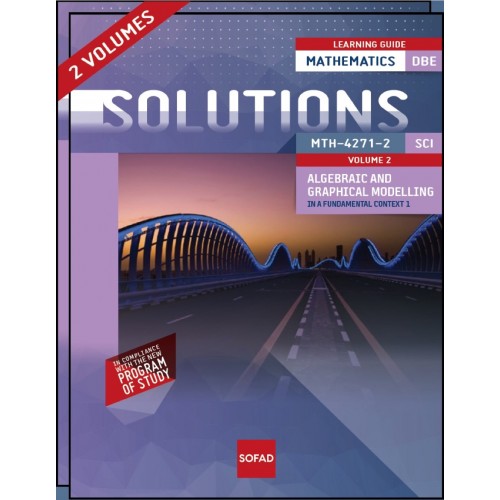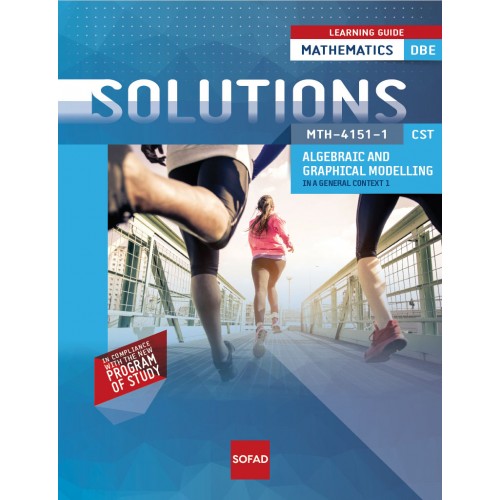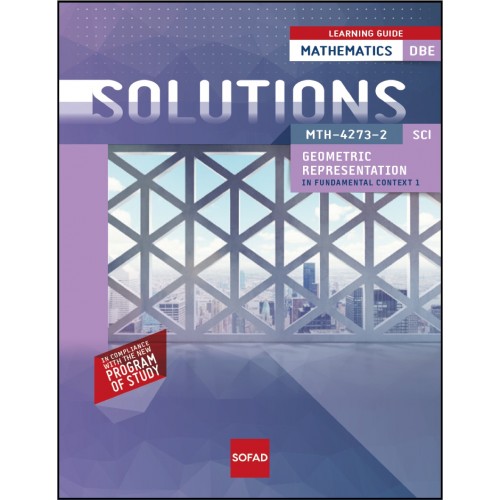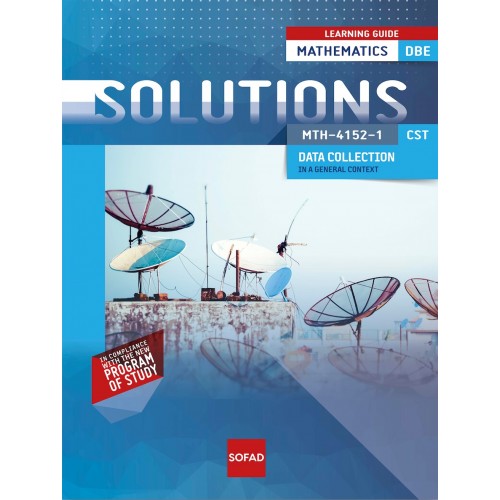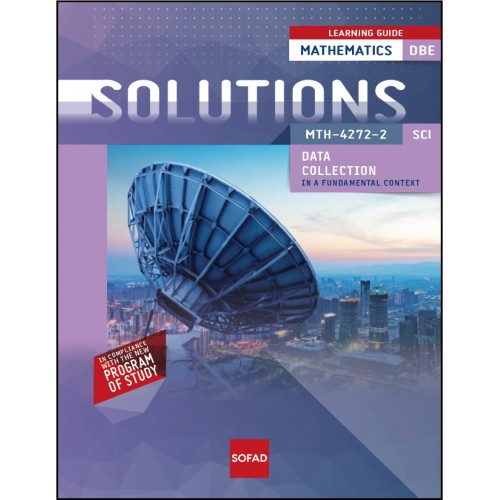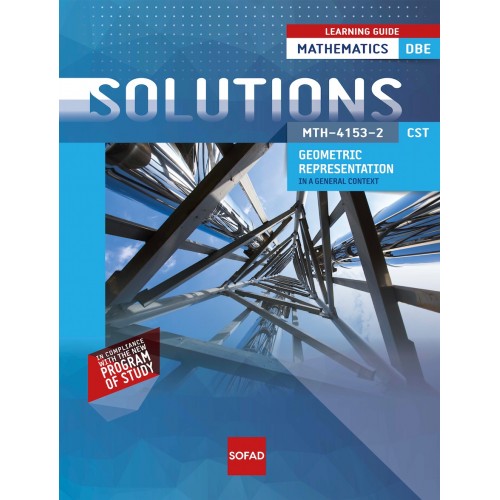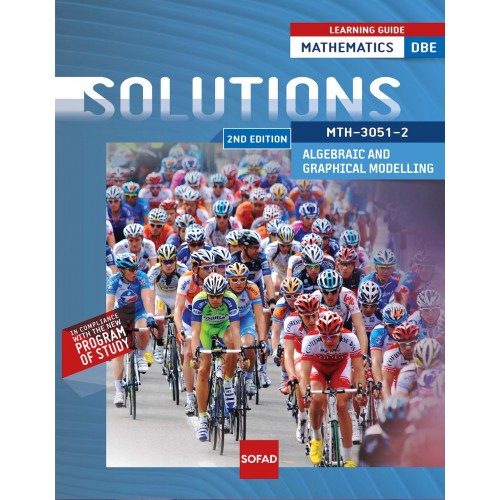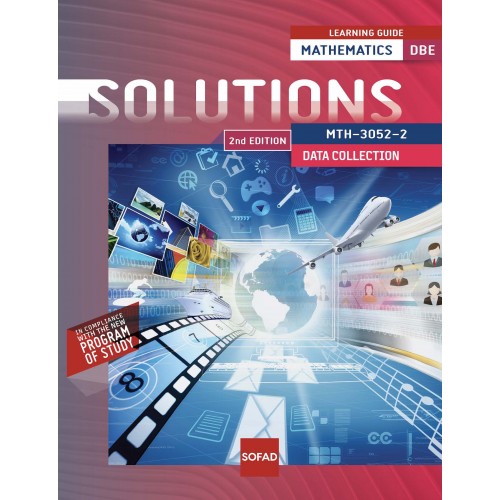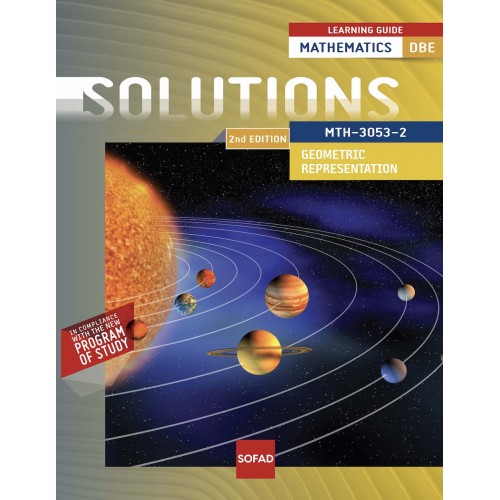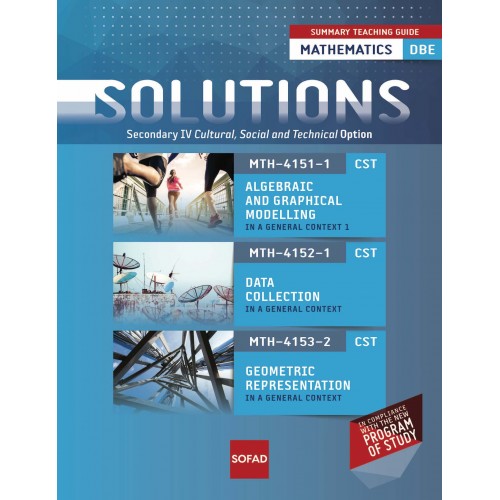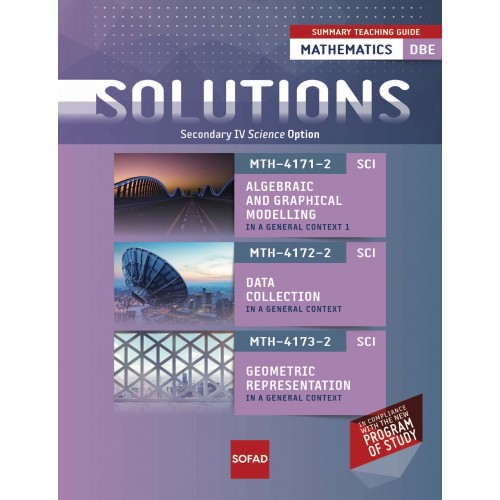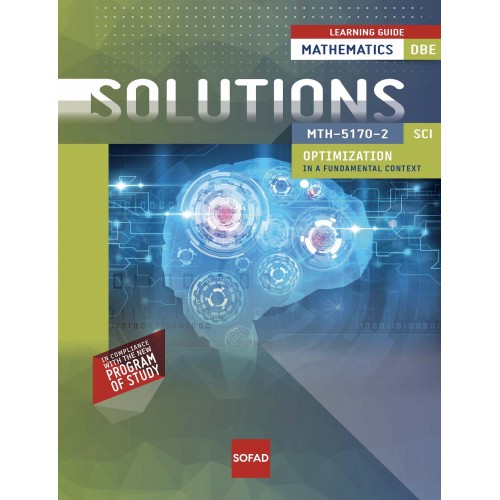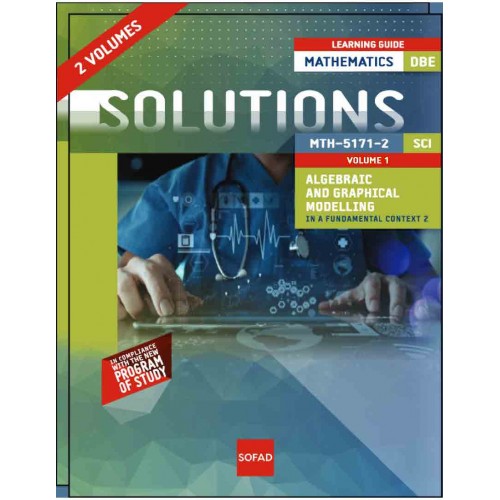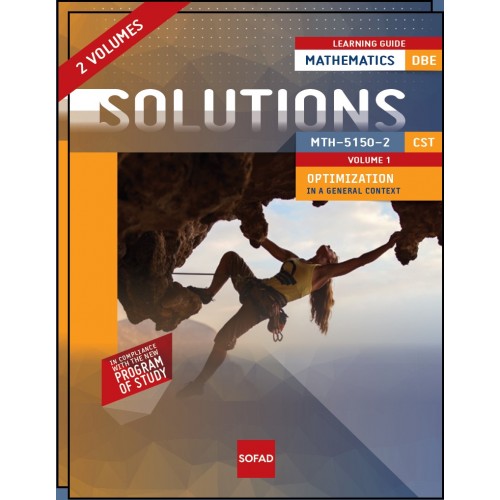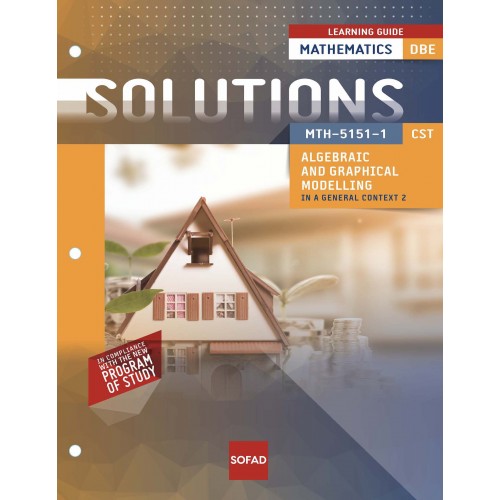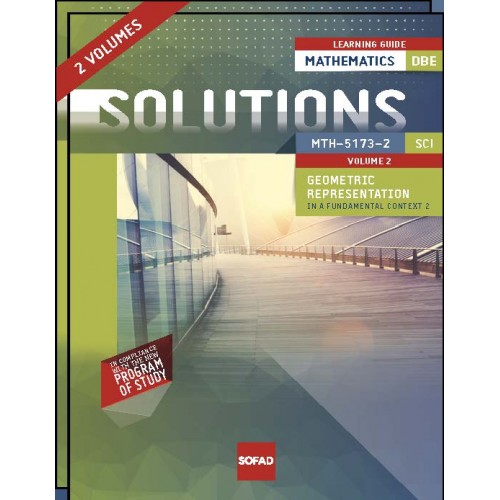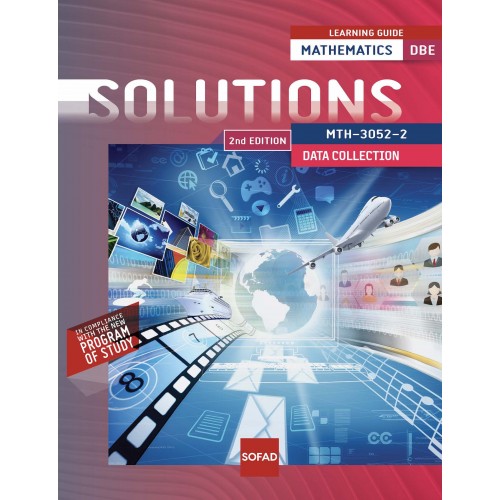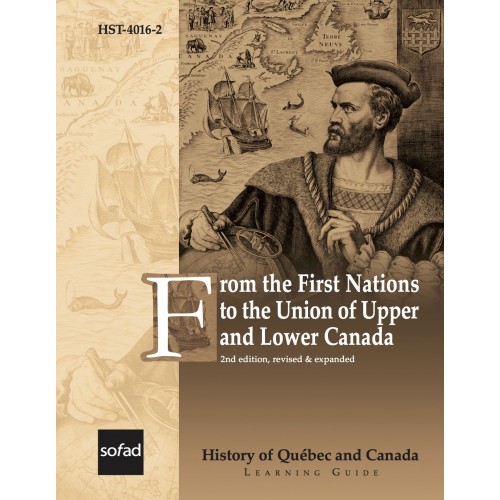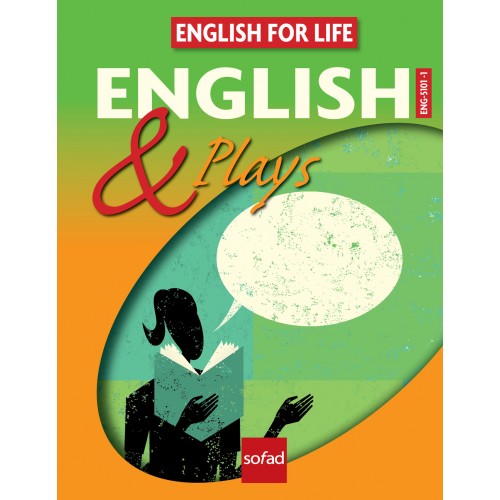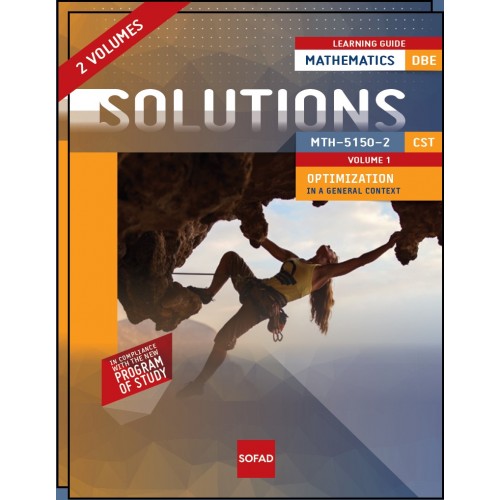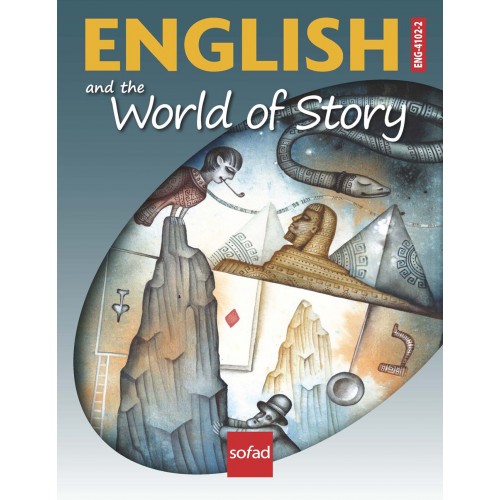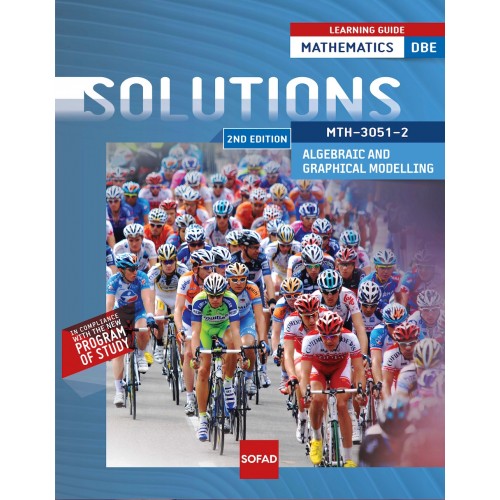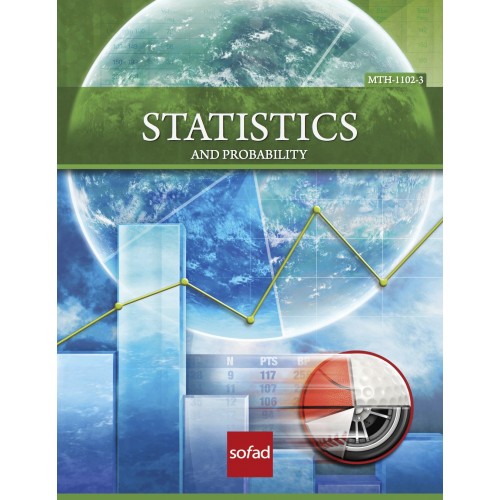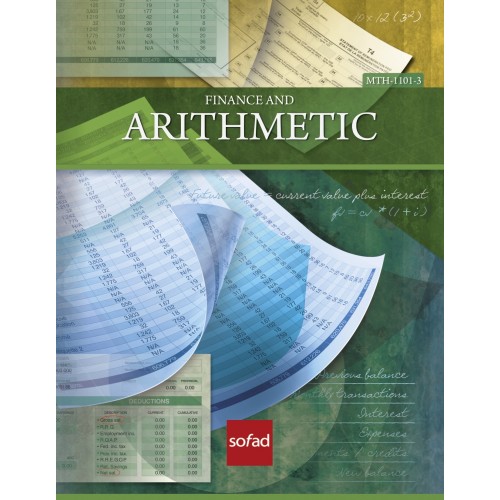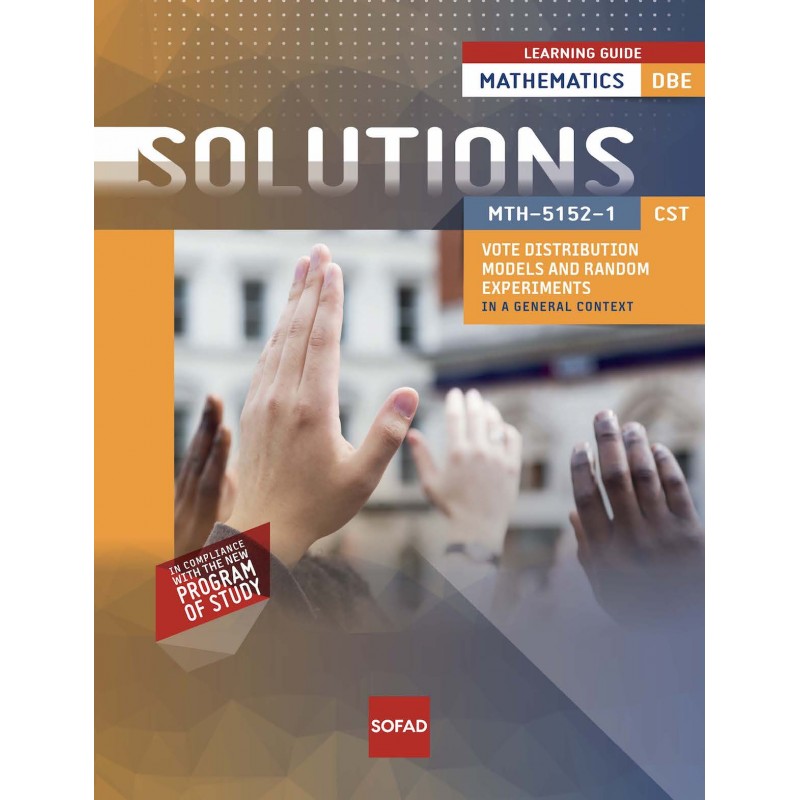
MTH-5152-1 – Vote Distribution Models and Random Experiments
Vote Distribution Models and Random Experiments in a General Context course is the third in the Secondary V Cultural, Social and Technical Sequence. It aims to develop the learners' ability to handle situations that require processing of data from a random experiment.
This learning guide has several digital components on portailsofad.com.
The SOLUTIONS learning approach is based on the acquisition of all the prescribed mathematical knowledge in a problem-solving context.
Duration: 25 hours (1 unit)
Content:
Different models of vote distribution:
- majority rule
- plurality voting
- Borda count
- Condorcet method
- approval voting
- runoff (or elimination) method
- proportional representation
Learners will complete their learning by expanding knowledge about probability by addressing, for example:
- counting
- mutually exclusive events
- conditional probability
- the concept of chance
- mathematical expectation
Evaluation:
- Passing mark for scored activities: 60%
- Passing mark for certification examination: 60%


